MercoPress. South Atlantic News Agency
Tag: Guido Mantega
-
Thursday, June 14th 2012 - 11:12 UTC
Brazil announces 12bn dollars direct aid for state and city governments
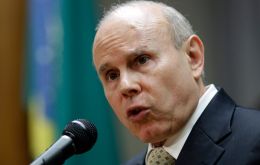
Anticipating further global market turmoil and ahead of October municipal elections, the Brazilian government will be announcing measures to prod the economy with direct support for states, cities and reversing corporate tax hikes, involving at least 25 billion Reais equivalent to 12 billion dollars.
-
Wednesday, June 6th 2012 - 18:48 UTC
Brazilian inflation falls below 5% in May for the first time since September 2010
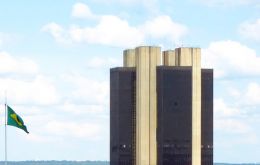
Brazil’s inflation rate fell more than economists expected in May, pushing the annual pace below 5% for the first time since September 2010. Monthly inflation slowed to 0.36% from 0.64% in April.
-
Saturday, June 2nd 2012 - 04:16 UTC
Brazil expands 0.2% in first quarter; stimuli measures still have to impact, says Mantega
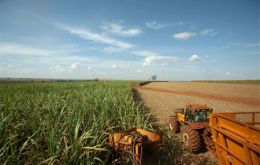
Brazil's economy barely expanded in the first quarter as frustrated business leaders cut back on investments, casting new doubt on the health of emerging markets.
-
Friday, June 1st 2012 - 17:29 UTC
Brazilian industrial output contracted for a second straight month in April

Brazil’s industrial output unexpectedly contracted for a second straight month in April even as the government steps up measures to boost economic growth.
-
Monday, May 28th 2012 - 17:10 UTC
Brazil pressing banks to lower loan rates by 30% and increase lending
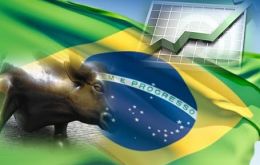
Brazilian banks must lower their lending rates by between 30% and 40%, and increase lending, without raising fees, to help spur economic growth, Finance Minister Guido Mantega said in an interview with the Folha de Sao Paulo newspaper.
-
Monday, May 28th 2012 - 16:36 UTC
Brazil “better prepared” for the current global crisis which will be “softer”

Finance minister Guido Mantega said that Brazil has double the reserves when the 2008 global recession and is prepared to confront a deepening of the European crisis but admitted that the economy would expand below 3.5% which is less than was targeted at the beginning of the year.
-
Tuesday, May 22nd 2012 - 03:22 UTC
Brazil announces measures to boost sales of vehicles and stimulate growth

Brazil lowered taxes on consumer borrowing and created incentives for banks to boost vehicle lending as policy makers struggle to revive economic growth in the Latin America’s largest market.
-
Wednesday, May 16th 2012 - 01:03 UTC
President Rousseff happy and supportive of the 2 dollars Real

The Brazilian Real dropped past 2 per dollars for a second day as President Dilma Rousseff said it has been “extremely overvalued,” encouraging speculation the currency of Latin America’s biggest economy may fall further.
-
Tuesday, May 15th 2012 - 02:30 UTC
Brazil’s Real falls to 2 per dollar, lowest since 2009; government overwhelmed
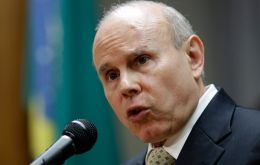
Brazil’s Real tumbled to 2 per dollar for the first time in almost three years as Finance Minister Guido Mantega said the exchange rate doesn’t worry the government, opening expectations the currency may fall further.
-
Thursday, May 10th 2012 - 19:52 UTC
Brazilian strategy to lower value of its currency seems to be working
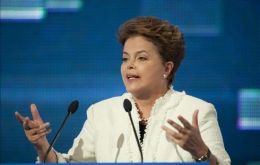
Investors pulled 1 billion dollars out of Brazil last week as Euro-zone debt fears continue to spook markets and the Brazilian government shows little sign of changing its hefty intervention policies.
